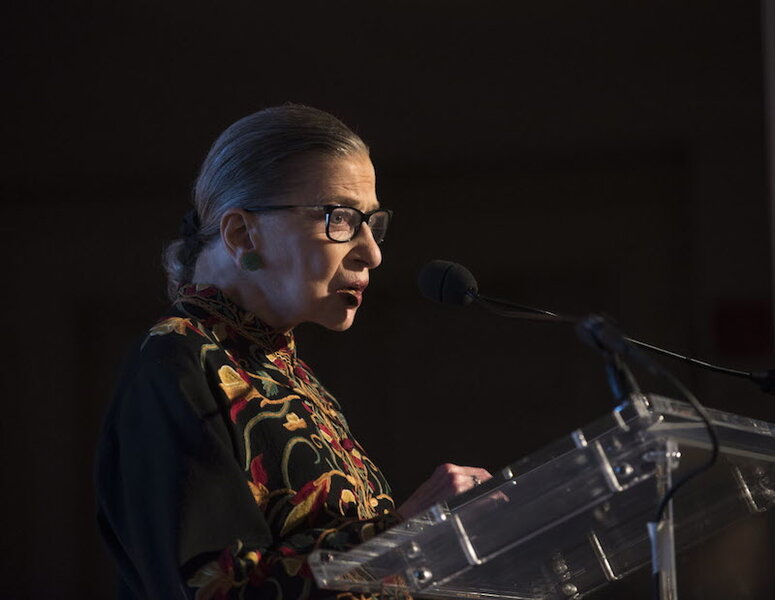Of kings, lawmakers, and 'we the people'
Loading...
On June 15, the West celebrated the 800th anniversary of the signing of Magna Carta. This “great charter,” forced on an English king by his barons, began the modern search for a natural law that would allow people to govern themselves as equals and in harmony.
The quest has not stopped.
On June 29, the US Supreme Court ruled that even a representative democracy must bend to the sovereignty of the people. The high court decided that a voter initiative in Arizona setting up an independent commission to redraw the state’s electoral districts could, in effect, be a legislature. The state’s elected representatives, in other words, are not the only legislature in a modern democracy. Lawmakers need not be in charge of redistricting if the people decide otherwise.
The court ruled that the word “legislature” in the Constitution should be broadened to include people power. Or as Justice Ruth Bader Ginsburg stated: “the invention of the [voter] initiative was in full harmony with the Constitution’s conception of the people as the font of governmental power.”
The decision marks a new frontier in a long struggle to find a way to order a society based on evolving concepts of sovereignty. Magna Carta took sovereignty away from one person, a monarch. By the American Revolution, sovereignty was defined as “we the people” but constrained by a Constitution and elected leaders. Now even the concept of “legislature” embedded in the Constitution has been broadened to include popular referendum.
The search to define sovereign power really began in the 18th century, with philosophers such as John Locke, whose ideas influenced the American experiment. Locke said humanity must live by a “law of nature” based on reason and originating by “one omnipotent, and infinitely wise maker.” By the 20th century, thinkers such as C.S. Lewis and John Rawls tried to define a universal moral law that exists in all societies. Lewis suggested there must be a moral law-giver that is more sovereign than humans themselves.
The Supreme Court decision, which came just two weeks after the anniversary of Magna Carta, shows the search for a type of self-government based on universal ideals must continue. It’s only natural.







